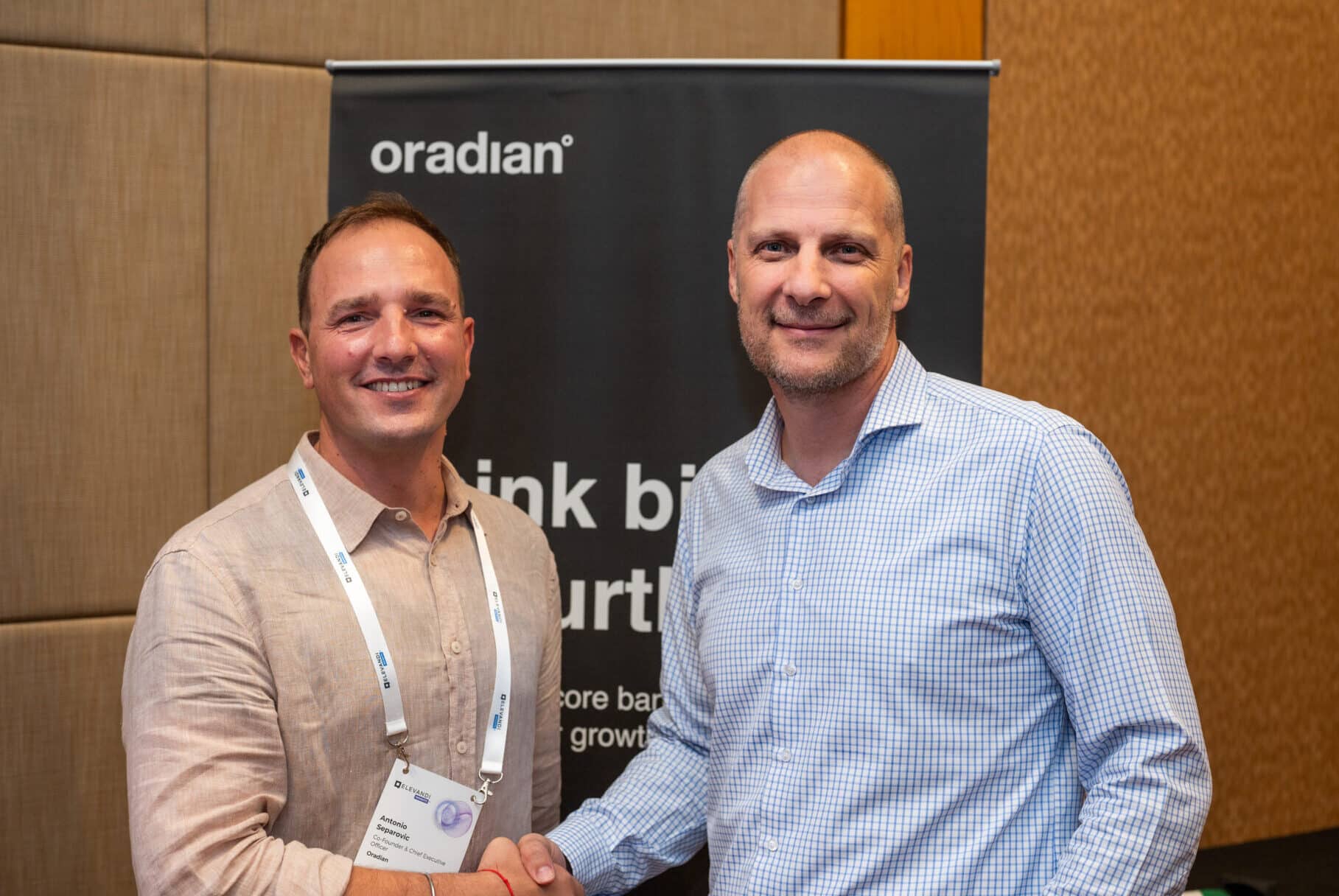Do financial institutions have to focus on achieving scale before pursuing financial inclusion? How does technology accelerate financial inclusion? Is profit mutually exclusive from creating a positive social impact?
For the answers to these questions, we turned to Global Digital Finance Specialist at IFC – World Bank Group Lowell Campbell, who joined Oradian CEO Antonio Separovic at our exclusive panel discussion at the Singapore Fintech Festival in November 2023.
Here are our five key takeaways from the session:
- Data is now the core underpinning the banking system. Investing in data capture in addition to a robust structure provides the new foundation for the core banking system to do what it does best: capture transactions, debits, and credits, with data driving the business itself.
- The key metric for measuring success is customer satisfaction. Customers care about value for money, so how cheaply you provide your service and how useful that service actually is are important considerations. If you can provide this, you will see measurable results in terms of customer satisfaction, which will in turn offer direction for your future innovations.
- End-clients are no longer willing to pay for their bank’s inefficiencies. The COVID-19 pandemic demonstrated that end-clients have the means to access financial services through technology, and are more than willing to switch service providers to get the best offers and the best value for money. Financial institutions should focus on driving down costs and creating real value for consumers.
- When considering whether to build in-house or outsource to a technology provider, businesses mustn’t let ego get in the way. Financial institutions must recognise their core competencies, which are typically launching innovative new financial products and creating valuable experiences for end-clients. By partnering with technology specialists that bring domain experience and constant innovation, financial institutions can focus on business growth.
- Open banking is critical for financial inclusion, so institutions need to start sharing their data. However few banks have been willing to share data for fear of their competitors stealing their customers. Open banking is critical because it increases the size of the pie, providing everyone with better services. This leads to better protection for consumers and an improvement in governance.
To discover more about how technology can drive growth and performance at scale, get in touch with our team of experts today.





